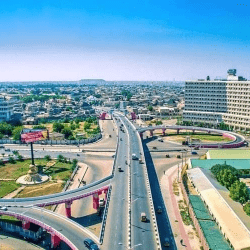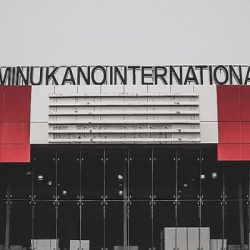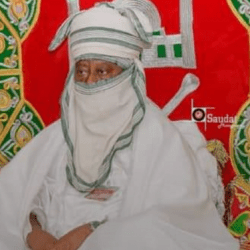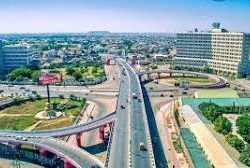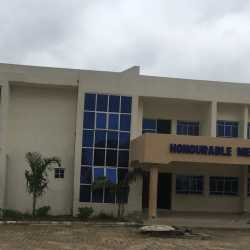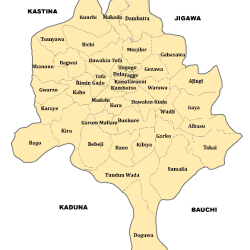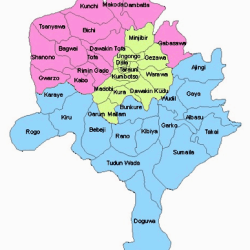Kano State remains one of the most influential regions in Nigeria, combining a rich historical legacy with a bustling modern economy. Its agricultural wealth, cultural heritage, and strategic position as a trade center make it a cornerstone of northern Nigeria’s social and economic structure. With the right investments and policy focus, Kano has the potential to further its economic and developmental growth.
Kano State is situated in the northwestern part of Nigeria. It is bordered by the following states:
- Jigawa to the northeast
- Katsina to the northwest
- Kaduna to the southwest
- Bauchi to the southeast
The state’s capital is Kano City, which serves as a major commercial hub not just for Kano State, but for northern Nigeria and West Africa as a whole.
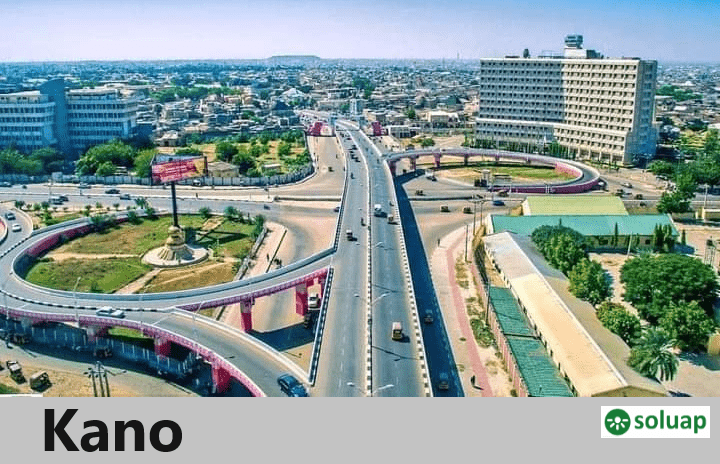
Topography and Climate:
- Kano lies within the Sahelian region, featuring semi-arid conditions.
- It experiences a tropical savannah climate with a distinct dry season (usually between November and April) and a wet season (from May to October).
History and Culture
Kano State has a rich historical background that dates back centuries. It has been a center of Islamic culture and scholarship in West Africa.
Pre-Colonial Era
- The area now known as Kano has been inhabited for millennia. By the 10th century, the Kano Emirate emerged, becoming an influential city-state.
- The Kano Chronicle, a written historical record, details the region’s rulers and significant events over several centuries.
Colonial Era
- Kano became part of the British protectorate in the early 20th century.
- The Kano Emirate continued to wield cultural influence even under British rule, and it remains an important institution to this day.
Cultural Heritage
- The state is predominantly populated by the Hausa ethnic group, with Islam being the major religion.
- Durbar Festival, a cultural display of horse riding, processions, and traditional attire, is one of the most famous events in Kano, showcasing the grandeur of the Kano Emirate.
Economy
Kano State has historically been one of Nigeria’s key economic centers, particularly due to its role as a commercial hub.
Agriculture
- Agriculture is the backbone of Kano’s economy, employing a large part of the population.
- Major crops include groundnuts (peanuts), millet, rice, cotton, and maize. The state is also known for its livestock farming.
Industries, commerce
- Kano was once famous for its groundnut pyramids, which symbolized Nigeria’s agricultural wealth.
- Textile production, tanning, and leather work are major industries in Kano. The state hosts several manufacturing facilities, making it one of the largest industrial centers in northern Nigeria.
- Kano City serves as a commercial hub for trade between Nigeria and other West African countries. The city’s markets, such as the famous Kantin Kwari Market, attract traders from across the region.
In recent years, Kano has diversified its economy to include mall and medium enterprises (SMEs) and services such as finance, transport, and communications.
List of Kano LGAs
Kano State has 44 LGAs (Local Government Areas), namely:
- Ajingi
- Albasu
- Bagwai
- Bebeji
- Bichi
- Bunkure
- Dala
- Dambatta
- Dawakin Kudu
- Dawakin Tofa
- Doguwa
- Fagge
- Gabasawa
- Garko
- Garun Mallam
- Gaya
- Gezawa
- Gwale
- Gwarzo
- Kabo
- Kano Municipal
- Karaye
- Kibiya
- Kiru
- Kumbotso
- Kunchi
- Kura
- Madobi
- Makoda
- Minjibir
- Nassarawa
- Rano
- Rimin Gado
- Rogo
- Shanono
- Sumaila
- Takai
- Tarauni
- Tofa
- Tsanyawa
- Tudun Wada
- Ungogo
- Warawa
- Wudil
Metropolitan LGAs of Kano
Six of the Local Government Areas: Fagge, Gwale, Tarauni, Kano Muncipal, Nassarawa and Dala comprise Kano city metropolis.
Council Wards in Kano State
Kano State has 484 council wards located in 44 (local Government Areas (LGAs). Some LGAs have up to 15 council wards while some have 10. A study by Soluap shows that the top 4 LGAs with the largest number of council wards in Kano State are:
- Dawaki Kudu
- Kiru
- Tofa
- Warawa
Each of the 4 LGAs above has 15 council wards.
As for the others, 1 LGA, Bebeji, has 14 council wards.
Another one, Kano Municipal, has 13 council wards.
3 LGAs, Ajingi, Dala and Rimin Gado each has 12 council wards.
11 LGAs have 11 council wards each.
The remaining 24 LGAs has 10 council wards each.
Kano State symbol
The official symbol of Kano State comprises an eagle, 2 camels, staff, pyramid, 2 wheels, green vegetation and an inscription (motto): ‘Work and progress’. Each item on the symbol signifiesone or more things.
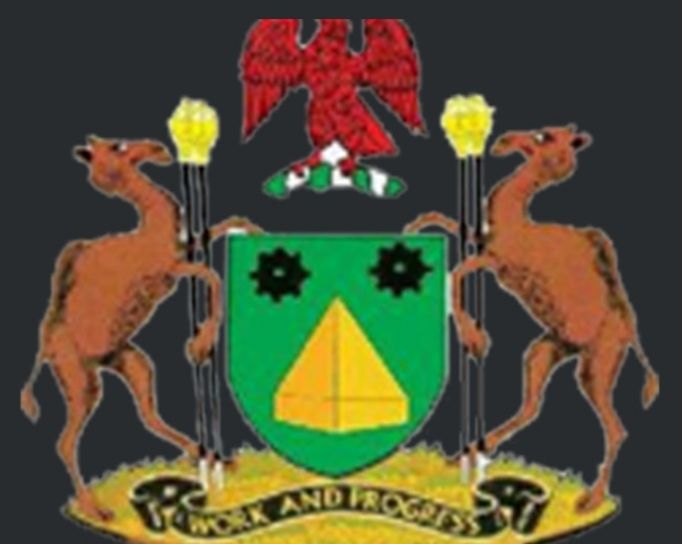
Demographics
Population:
- Kano State is Nigeria’s second most populous state, with over 13 million people according to the most recent estimates.
- The population is overwhelmingly Hausa-Fulani.
Languages:
- Hausa is the most widely spoken language in Kano, serving as the lingua franca. English is also spoken, especially in official and business settings.
Tourism and Attractions
Kano is home to several historical and cultural attractions, making it a notable destination for tourism in northern Nigeria.
Notable Sites:
- Gidan Makama Museum, located in an ancient palace, offers a glimpse into Kano’s rich cultural history.
- The Ancient Kano City Walls, dating back over a thousand years, once protected the city from invaders and remain an iconic symbol of the region.
- Kurmi Market, one of the oldest markets in West Africa, provides a vibrant space for trade in traditional crafts, textiles, and goods.
Challenges
- Despite its economic prominence, Kano faces challenges related to poverty, youth unemployment, and infrastructure deficits.
- The state has also been impacted by the insurgency in northern Nigeria, although not as severely as some neighboring states.
Opportunities
- Kano’s large population provides a vast potential labor force and consumer market.
- There are growing opportunities in the agriculture value chain, industrial development, and education sectors to further enhance Kano’s economy.


